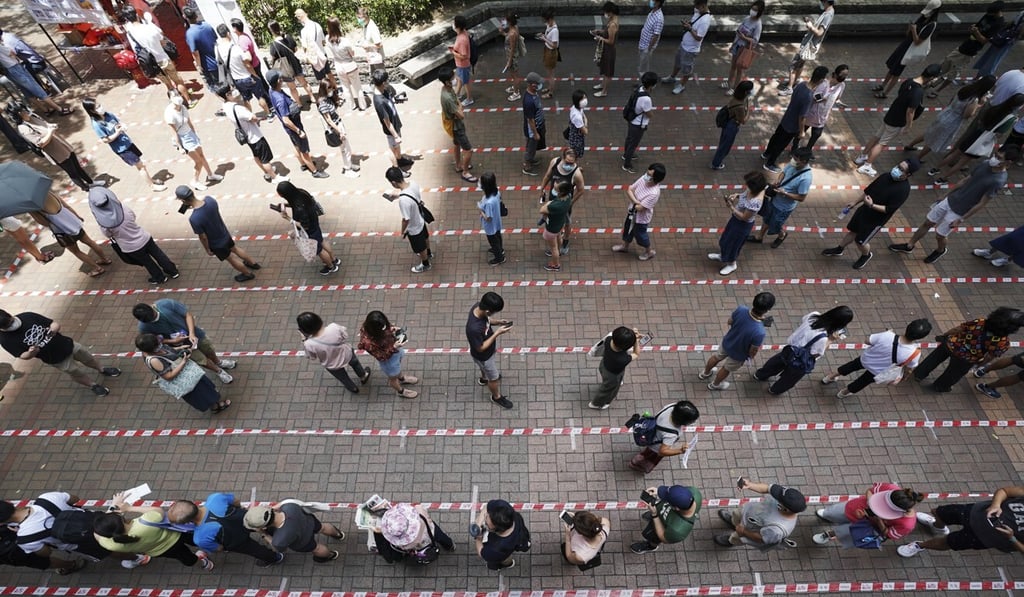National security law: former Hong Kong lawmaker who helped guide opposition primary steps down amid Beijing warnings
- The 33-year-old points to recent statements citing potential national security law breaches in withdrawing from opposition task force.
- Group of winners vow to remain defiant, labelling themselves a new ‘resistance bloc’ in Hong Kong politics

Au Nok-hin, 33, on Wednesday described statements issued by Beijing in the past two days as unexpected, saying he had no choice but to withdraw from the task force to protect his safety and that of others.
“I hope my departure will not give people an impression that [the primary] is problematic,” he said. “In any other normal society, I would have repeatedly insisted the primary has not breached any laws, but this will not work in places with authorities that do not reason.”
Wong is among Hong Kong’s most high-profile activists and has in the past urged the United States to enact sanctions against officials over their handling of anti-government protests. That has made him a target and he was the sole candidate to be banned from running in district council polls last year after authorities deemed he still supported independence for Hong Kong, despite his repeated claims he was against it. His fresh pledge to continue his fight came after he topped the primary in the Kowloon East constituency, taking more than 30,000 votes.
Au’s resignation came a day after the cabinet-level Hong Kong and Macau Affairs Office issued a strongly worded statement, lashing out at those behind the polls and accusing the primary of being “an unlawful manipulation of Hong Kong elections” and “a blatant challenge” against the Basic Law – the city’s mini-constitution – and the national security law.
